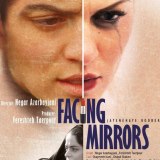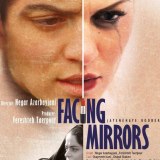 TEHRAN � Iran�s acclaimed movie industry is the latest sector to suffer the effects of economic sanctions over the country�s uranium enrichment program. But as filmmakers warn that they might pause production due to lagging funds, two controversial new releases are breathing life into the domestic cinema scene.
TEHRAN � Iran�s acclaimed movie industry is the latest sector to suffer the effects of economic sanctions over the country�s uranium enrichment program. But as filmmakers warn that they might pause production due to lagging funds, two controversial new releases are breathing life into the domestic cinema scene.At the close of a year in which increased ticket prices caused a 40 percent drop in cinema attendance, the movies �Facing Mirrors� and �I Am a Mother� are driving a spike in box office sales. And their provocative protagonists � a transsexual in the first, and nouveau riche characters who drink alcohol and adopt other taboo behaviors in the second � are causing a wider debate on cinema in the Islamic republic.
�I Am a Mother� has caused particular uproar, prompting protests by conservative religious groups and an attempted ban by Iran�s Academy of Arts, a division of the Islamic Development Organization, which owns more than one-third of Iranian movie theaters. But in what some observers say is a demonstration of an official loosening of cultural restrictions in response to public frustration over a shortage of entertainment, the Ministry of Islamic Culture and Guidance allowed its production and release.
Amid the debate, Mohammad Hosseini, the Islamic culture and guidance minister, has explained that decision differently, saying: �In order to show how some un-Islamic lifestyles lead to a dead end, the filmmaker must depict their behavior and improper relationships. .?.?. Society should show a little tolerance.�
Whatever the reason for that movie�s official approval, the two new releases have given a pick-me-up to a struggling industry. In February, Iranians were celebrating�film�director Farhad Asghari�s capture of the country�s first Oscar � his �A Separation� won for best foreign language film � but the Iranian cinema owners association was warning by November that shrinking attendance might force them to close their theaters without government assistance. Ticket prices have more than doubled to about $1.75 since 2009, and film production costs have increased amid a teetering economy.
Ticket-sale record
But last month, �I Am a Mother� broke Tehran�s single day ticket-sale record, which was previously held by �A Separation.� Currently it is No. 1 one at Iranian box offices, and �Facing Mirrors� is fourth, despite only being screened at three theaters in Iran.
�These movies have had great attendance, showing again that our people have their own logic,� the producers and directors of �I Am a Mother� and five other films wrote last week in a defiant letter, published by several newspapers, responding to attempted bans by the arts academy. �The tremendous sale of these movies in the last two months is a strong response to your baseless accusations that such movies are �immoral� and �against values.� Now these .?.?. movies have given a new life to Iranian cinemas.�
�I Am a Mother� tells the story of a young woman who kills a family friend after he rapes her. The rapist�s family calls for the woman�s execution under an Islamic law known as Qisas, which allows for the heirs of a murdered person to decide the fate of a convicted murderer. Debate about the film, however, has centered on the characters� relatively liberal lifestyles � female characters, for example, appear without headscarves.
�Facing Mirrors� follows a female-to-male�transsexual�who is picked up by a female taxi driver who is trying to earn money to pay for her husband�s release from debtors� prison. Adineh, the transsexual, has run away from home because her father has arranged a marriage for her, believing the union will solve the family�s �curse.�
The success of the films � and their subjects � have buoyed some Iranian filmgoers.
�I almost cried,� said Mahsa, a 24-year-old male-to-female transsexual who declined to give her full name, after seeing �Facing Mirrors.� �It can help parents understand that there are other kids that have these issues besides their own. I hope my parents go see it, too.�
Low profiles
Mohammed Reza, a film buff who works at a construction company in Tehran, said the new movies signaled a trend of greater leeway from Iran�s moral authorities.
�Iranian cinema is getting less restricted in terms of stories and subjects,� said Reza, 28. �Not because some officials want to loosen their restriction, but because directors, writers and the audience are demanding it, and the officials can no longer stick to their stricter fundamentals.�
But in spite of slightly greater freedoms, filmmakers in Iran still tend to maintain low profiles, and attempts to reach the two films� producers and directors were unsuccessful. Several Iranian filmmakers have been imprisoned in recent years for association with foreign media and cultural organizations. Hojatoleslam Ghafouri, an influential cleric, recently told reporters that he believed the filmmakers behind �I Am a Mother� should be disciplined.
�I am among those who know the content of the movie and think that the protesters� demand to stop the movie is correct,� Ghafouri said, referring to the public demonstrations against the movie. �Those who are accused because of this movie must be summoned to the court immediately and answer to the public.�
Speaking at a recent news conference, Mohammad Bagheri, a cleric and a member of parliament�s cultural commission, disagreed.
�They have to let the authorities do their job,� he said. �Like any other movie, there are some points to criticize in �I Am a Mother,� but simply because of these points we cannot stop showing it.�
By The Washington Post
The Iran Project is not responsible for the content of quoted articles.











